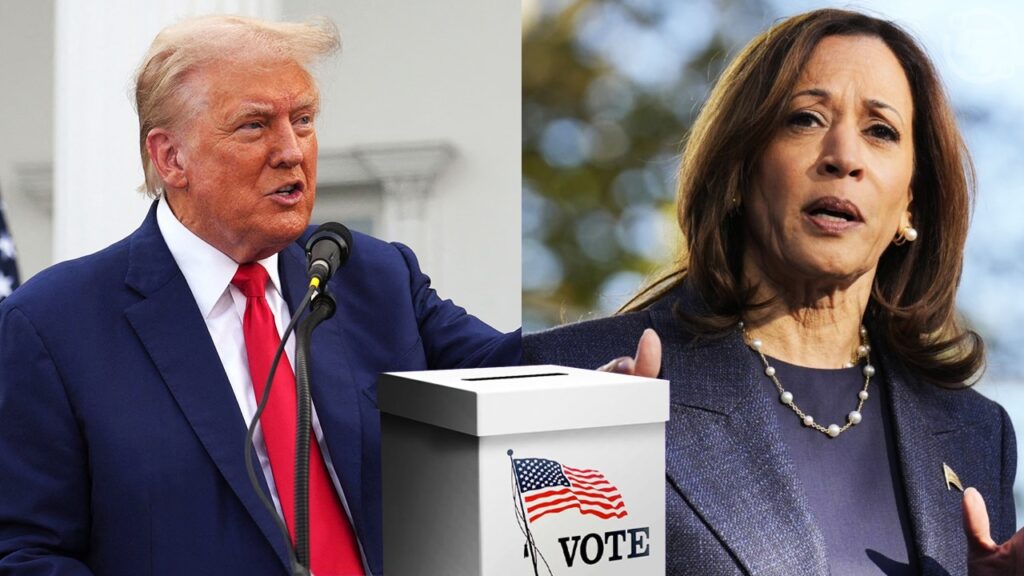For the crypto community, 2024 has been a monumental year full of ups and downs, but the culminating moment has not yet arrived, as the United States will vote for its next president on November 5. Trading analysts are already speculating on wild predictions regarding the price of Bitcoin which has already reached all-time highs, reaching a value of $73,000 this week.
Former President Donald Trump and opposing Vice President Kamala Harris are both doing their best to woo the crypto community ahead of the big day. In the United States, an estimated 50 million voters hold some form of cryptocurrency, and in these elections they are listening intently to politicians, looking for fiercely pro-crypto candidates.
Additionally, the historic approval of Bitcoin and Ethereum spot exchange-traded funds (ETFs) in the United States represented a significant step toward mainstream acceptability, creating a positive aura for the community. But there is still a lot of uncertainty about current crypto regulations and voters are closely watching which political party will deliver on its promises.
One thing that is certain is that American voters are very likely to vote for a president whose views benefit them as well as the crypto community as a whole. If so, that means clear and effective monetary policy will be a deciding factor in getting votes in the 2024 US elections, and here’s why!
Why crypto matters in the 2024 US elections?
Increased awareness and interest in cryptocurrency
The level of interest in cryptocurrency has increased, which is the most notable change in the last year. Recent Grayscale surveys indicate that 53% of respondents are now aware of cryptocurrency, up from 47% in 2023.
Additionally, almost a fifth of voters would be willing to consider investing in crypto again provided the markets are better regulated, but at the moment others are not as they are still evaluating the position of their preferred candidates on critical issues such as privacy, security, and stability of cryptos.
Therefore, for candidates, this means that crypto regulation can no longer just be a financial or technological issue: it has become electoral, and to some extent pro-crypto policies can help candidates conquer this issue. active segment of voters.
Crypto regulation: a potential advantage for the parties
Voters choose to vote based on their beliefs about whether a party aligns with their philosophy, and that’s also proving true for voters in this election, and right now, Republicans are generally seen more favorably than Democrats when it comes to crypto policies, in particular. therefore among crypto owners.
However, both sides have the opportunity to strengthen their position. The research shows that a considerable fraction of the electorate is still undecided about which party can best regulate crypto and provides an opening for central candidates from both parties to recalibrate their proposals on crypto.
Turning to the regulation of cryptocurrencies would also be more beneficial for candidates, because it would cross party divides. Financial privacy as well as security appear to be issues that appeal to both Democratic and Republican voters, while issues centered on economic competitiveness and job creation through technological advancement appeal more to younger people. By addressing these questions, candidates will broaden their scope of appeal.
Importance of Clear Crypto Regulations
One of the concerns of voters engaging with cryptocurrency is the need for proper laws and regulations. A large number of American citizens believe that the current financial infrastructure is outdated and lacks transparency, especially when it comes to new developments such as blockchain and decentralized finance (DeFi).
Even as voters recognize the benefits of crypto such as faster payments, greater availability of services, and reduced reliance on traditional financial intermediaries, restrictions are also needed.
In fact, Grayscale research indicates that nearly 80% of U.S. voters believe some regulatory controls are necessary to manage new technologies to help protect investors and for national security purposes.
Those who have already put their money into crypto are not deterred by the regulations; it is considered as the next step for safe market growth. More definitions, such as one protecting investors from fraud and manipulation, could prevent problems from arising and create a healthier investment for current and potential crypto consumers.
The electorate believes that well-formulated regulations could help stabilize the crypto market and offer it as a reasonable long-term investment option while alleviating fears of excessive market fluctuations.
Conclusion
It is likely that clear and balanced cryptocurrency regulation will help secure votes for candidates in the 2024 elections. Candidates can win over crypto-sensitive voters by convincing them that their troubled land elections were stolen for reasons of security, confidentiality and innovation and thus present themselves as leaders ready to embrace a technological world.
Also Read: Bitcoin Surpasses $71,000 Ahead of US Elections: Is It the Best Time to Invest?




